April 7, 2024
“Unsavory” may be forgiven, if not forgotten. Speculation aside, objectively, none of Steel City Re’s reputation risk measures indicated a problem with MSGE. The obvious benefit of such objective metrics is that it protects CEOs’ reputation-linked compensation and shields boards from attacks. Is your reputation risk management process insurance-authenticated?


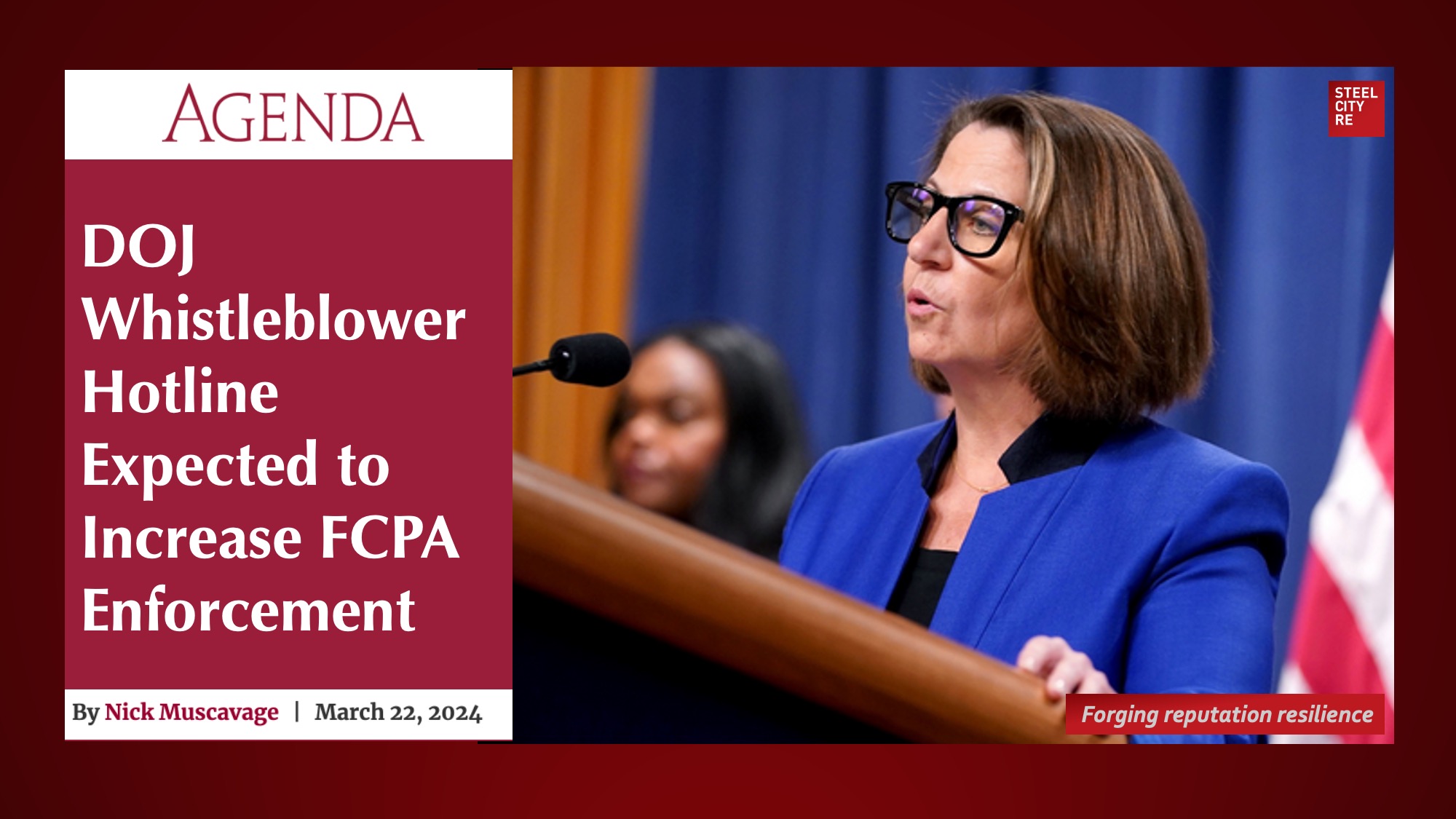
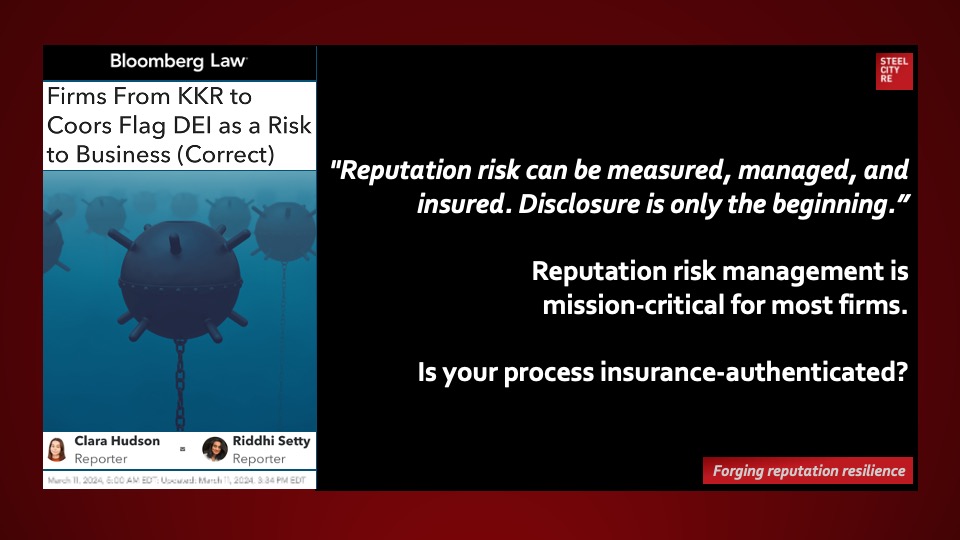
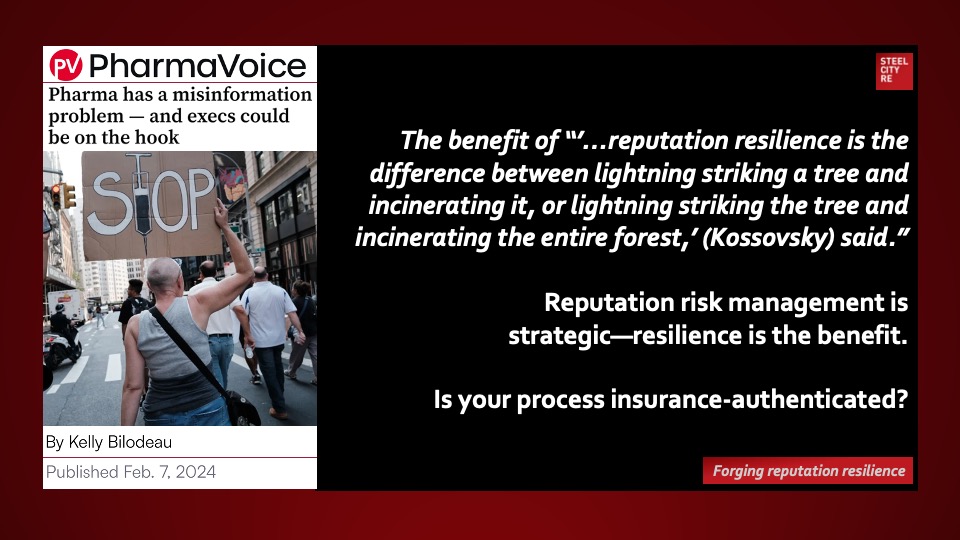
![Nir Kossovsky, CEO of Steel City Re, an insurance provider for reputational risk, said his firm’s Reputation Resilience Monitor for Tesla indicated little concern about Musk’s pay package, but real concern about the firm’s cost of operations, declining net income and future prospects. […] “However, should stakeholders become excitable, then any incident — even another round on the pay package — could trigger a shift in their expectations from fandom-level support to anger and disappointment,” he said.](https://steelcityre.com/wp-content/uploads/2024/02/20240205-Tesla-Musk-Pay-Package-Reputation-Steel-City-Re.jpg)
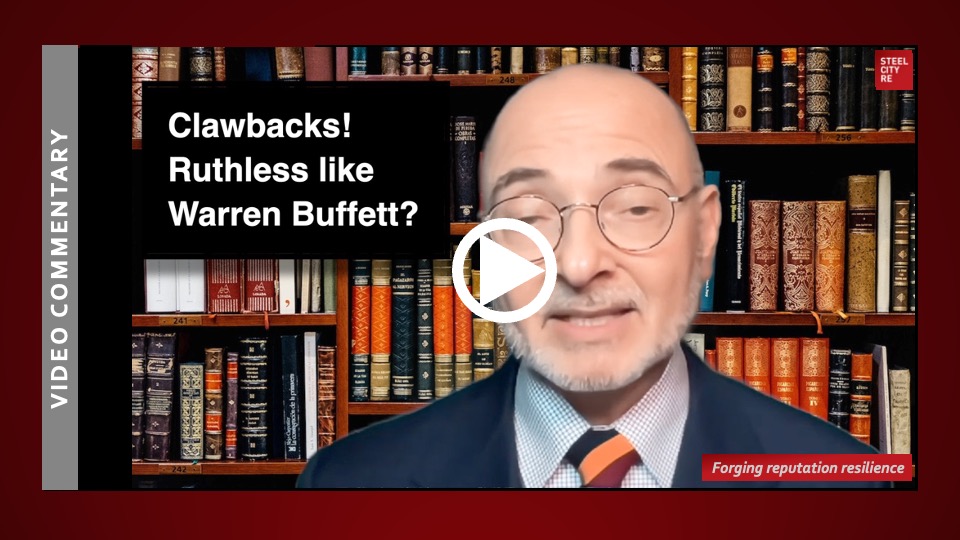
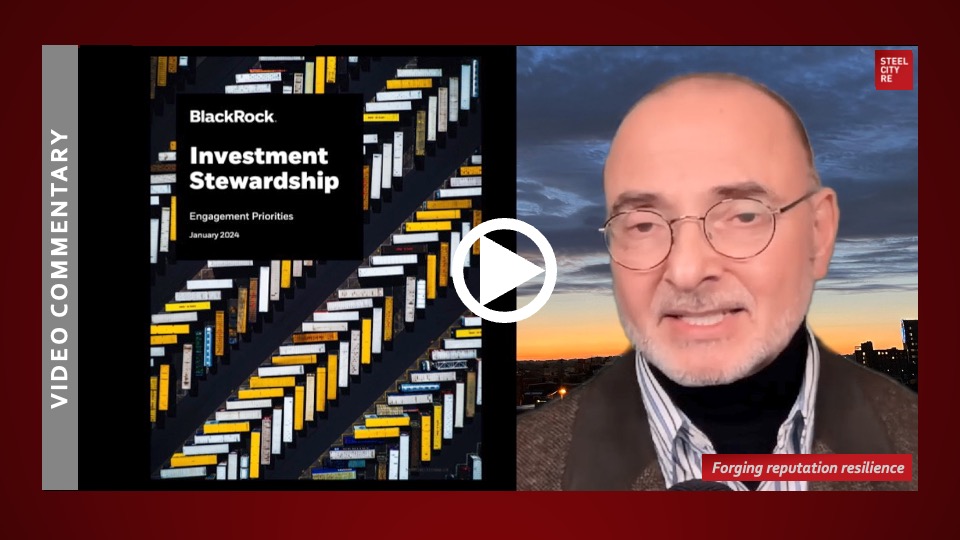
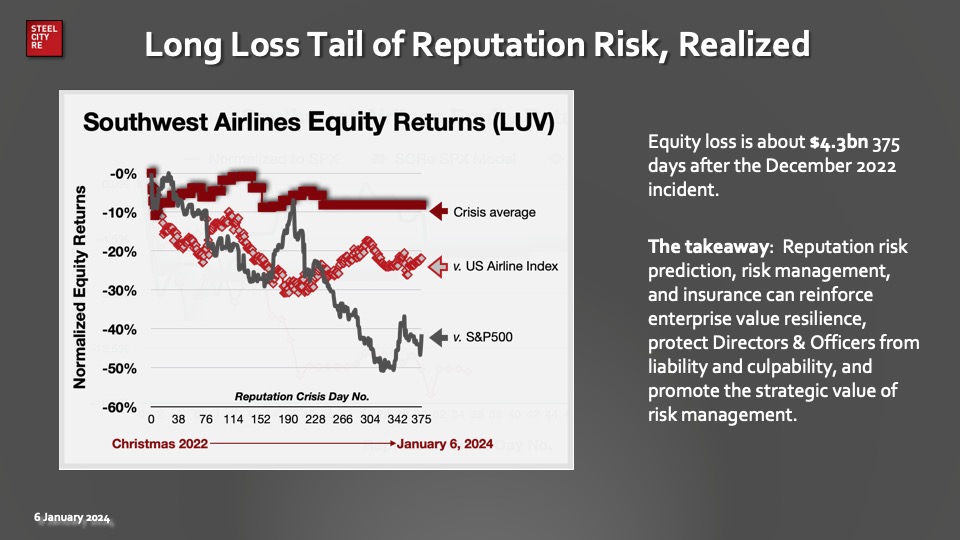
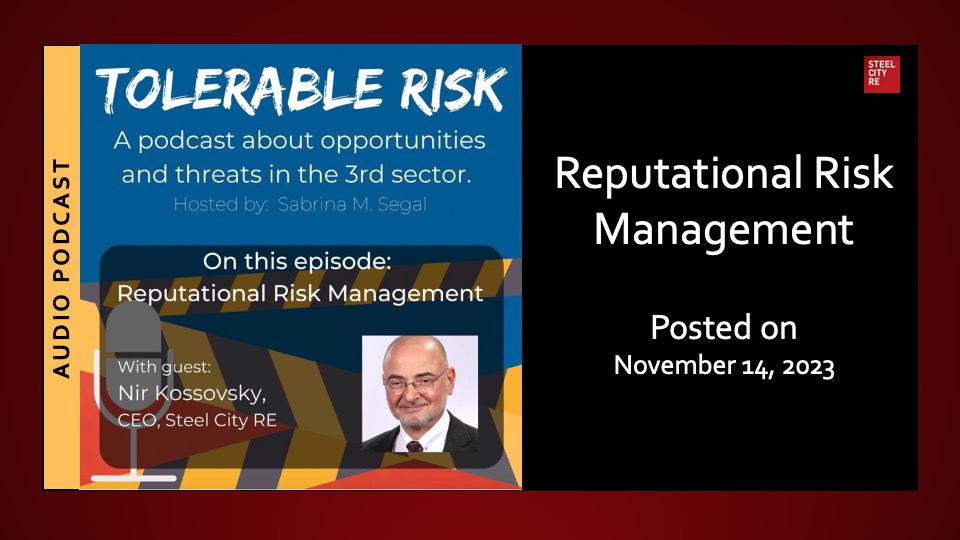
![Mitigate value-destroying legal risk. For Fox, Kossovsky said. “This new reputation at FOX Corporation, if it [is] indeed forming, is or will be value-destroying.”](https://steelcityre.com/wp-content/uploads/2023/10/20231016b-Steel-City-Re.jpg)